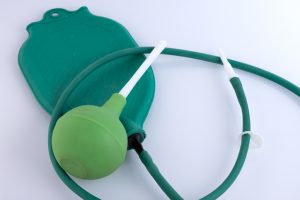 This month we are proud to shine our Employee Spotlight on Joy Batoon, a medical technologist at Flushing Hospital Medical Center.
This month we are proud to shine our Employee Spotlight on Joy Batoon, a medical technologist at Flushing Hospital Medical Center.
Joy has been employed at Flushing Hospital for 13 years and prior to that worked at Jamaica Hospital Medical Center from 1992 until 2008.
She was born in Cebu, Philippines where she attended elementary through high school at Saint Catherine’s. Joy then attended Southwestern University where she obtained a bachelors of science degree in medical technology. Prior to moving to New York in 1992, Joy lived for a few years beginning in 1977 in Honolulu. She has a daughter Jowin and a 16-year-old cat named JoJo that she has had since it was a kitten.
Joy has a third degree blackbelt in Taekwondo and in her free time volunteers as a teacher of Taekwondo. She also enjoys horseback riding, rock climbing, indoor skydiving and attending rock concerts. Her favorite place to travel to is Hawaii, and she has also enjoyed vacations to Aruba, Austin Texas, and Los Angeles. Joy enjoys many different types of food, especially Filipino. She also enjoys Indian, Jamaican, Italian and Ukrainian food.
Joy states her colleagues have become like family to her. They are all very supportive of one another. We look forward to her continuing to work at Flushing Hospital for many more years.
All content of this newsletter is intended for general information purposes only and is not intended or implied to be a substitute for professional medical advice, diagnosis or treatment. Please consult a medical professional before adopting any of the suggestions on this page. You must never disregard professional medical advice or delay seeking medical treatment based upon any content of this newsletter. PROMPTLY CONSULT YOUR PHYSICIAN OR CALL 911 IF YOU BELIEVE YOU HAVE A MEDICAL EMERGENCY.









